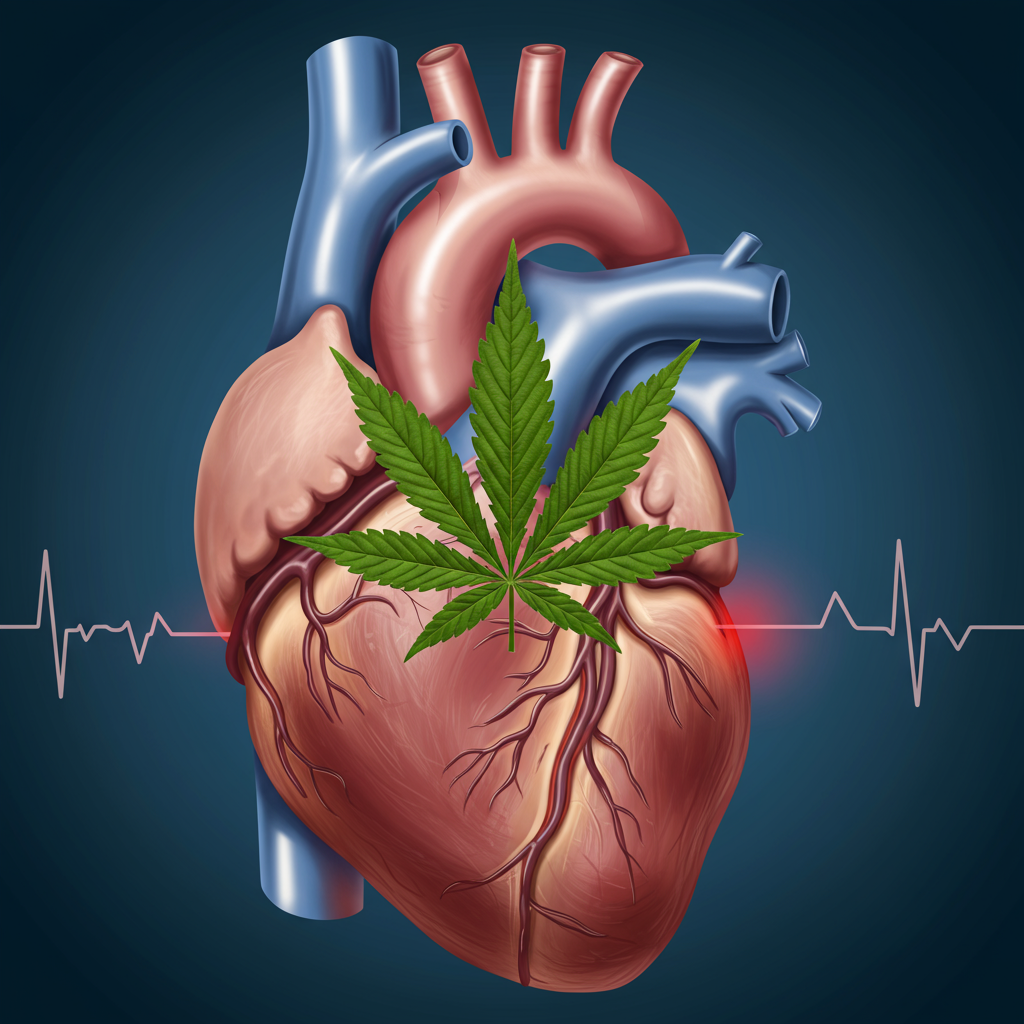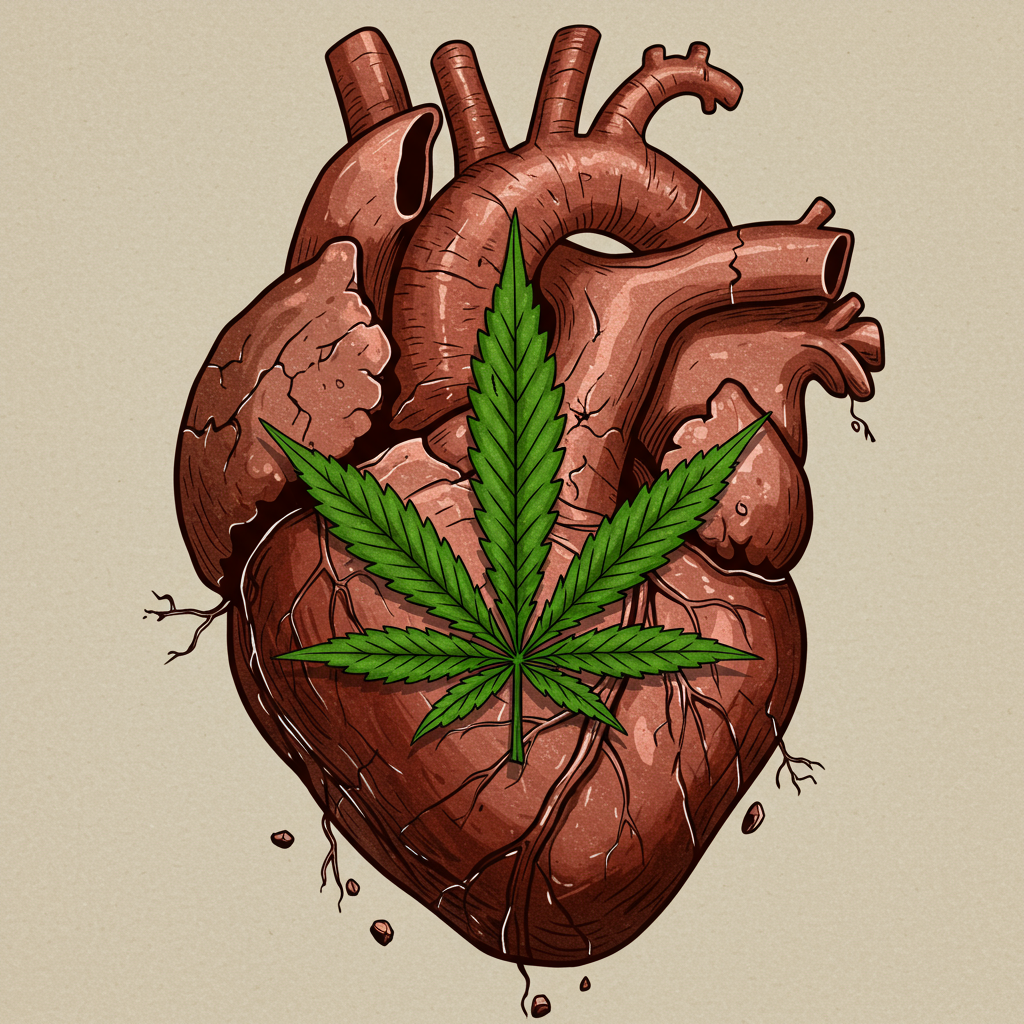Cannabis use is becoming increasingly widespread, moving from the fringes to pharmacies, pain clinics, and even legislative discussions. Millions now turn to it for help with sleep, relaxation, pain management, or as a perceived natural alternative to conventional medicines. Yet, as its acceptance grows, alarming new research is shedding light on potential health consequences, particularly for the heart.
A Growing Body of Evidence:
While cannabis offers proven medical benefits for certain conditions, particularly in managing chronic pain, chemotherapy-induced nausea, appetite stimulation, and reducing seizures in some epilepsy cases, heart doctors have observed concerning trends. Recent studies, including a significant analysis published in the journal Heart, drawing on data from over 432 million individuals and focusing on 24 specific studies, reveal a clear and troubling link between cannabis use and major cardiovascular problems.
The comprehensive analysis indicates that individuals who use cannabis face a significantly higher risk of serious heart issues:
A 29 percent increased risk of heart attack.
A 20 percent increased risk of stroke.
More than double the risk of dying from heart disease.
These findings are not based on opinion but on substantial data. In a surprising finding from one French hospital study included in the analysis, cannabis emerged as a stronger predictor of heart attack than substances like cocaine, even after accounting for tobacco and other drug use. Furthermore, separate research focusing on specific heart rhythm disorders found that cannabis users had a 35% increased risk of being diagnosed with new-onset atrial fibrillation (AFib), adding another cardiovascular concern to the list.
Higher Risks for Young and Regular Users:
The risk profile associated with cannabis doesn’t appear uniform across all users. Research suggests that the danger becomes much clearer and more pronounced among certain groups:
Heavy or Regular Users: While occasional use showed less consistent links in some studies, regular or heavy consumption significantly elevates risk. An Australian study found weekly cannabis users were nearly five times more likely to experience a stroke or mini-stroke.
- Young Adults: Younger individuals appear particularly vulnerable. One study highlighted that cannabis users aged 15 to 22 were 36 percent more likely to have a heart attack. A large U.S. hospital database also found an increased risk, notably in those aged 25 to 34. Tragically, studies on young patients who suffered heart attacks and also used cannabis found them far more likely to die, even after controlling for smoking and other health issues.
- www.earth.com
- www.bbc.com
- www.euronews.com
- medicine.yale.edu
- newsroom.heart.org
Interestingly, a 2024 study in the UK found that among heavy cannabis users, women faced a higher risk of heart-related death compared to men.
The Impact of Modern Potency:
Experts point out that the cannabis available today is vastly different and significantly more potent than in past decades. Average THC levels, the main psychoactive compound, have skyrocketed. While THC averaged around 4% in 1995, it reached 17% by 2017, with concentrates like dabs, oils, and edibles hitting levels as high as 90%. This surge in potency means stronger effects on the brain and body, including the cardiovascular system.
The high concentrations of THC in today’s products are linked not only to potential cardiovascular stress (like increased heart rate) but also to other severe consequences, including addiction, withdrawal, impaired cognition, and a concerning association with psychosis, particularly with early and heavy use of high-potency products. This shift in product strength requires a re-evaluation of perceived risks.
Addressing the Health Implications:
Given the increasing prevalence and potency of cannabis, leading health experts, including Professor Stanton Glantz and Dr. Lynn Silver, emphasize the critical need to integrate cannabis use into the framework for preventing clinical cardiovascular disease. They argue that the regulation of cannabis markets must also consider cardiovascular health impacts.
Current markets include potent concentrates, synthetic versions, and various delivery methods like edibles and inhalables. The full range of risks associated with these newer products, beyond just the cannabinoids themselves, remains unclear and requires further investigation. Some experts draw parallels between the commercialization tactics of the cannabis industry and those historically used by the tobacco industry, raising concerns about targeting vulnerable populations and potentially downplaying health risks.
Healthcare professionals are urged to routinely ask patients about their cannabis use, especially those with existing heart conditions. For individuals who use cannabis regularly, particularly young people, the growing body of evidence strongly suggests it’s time to reconsider the notion that it is a harmless substance. Understanding these potential risks is crucial for informed choices about health and well-being.




